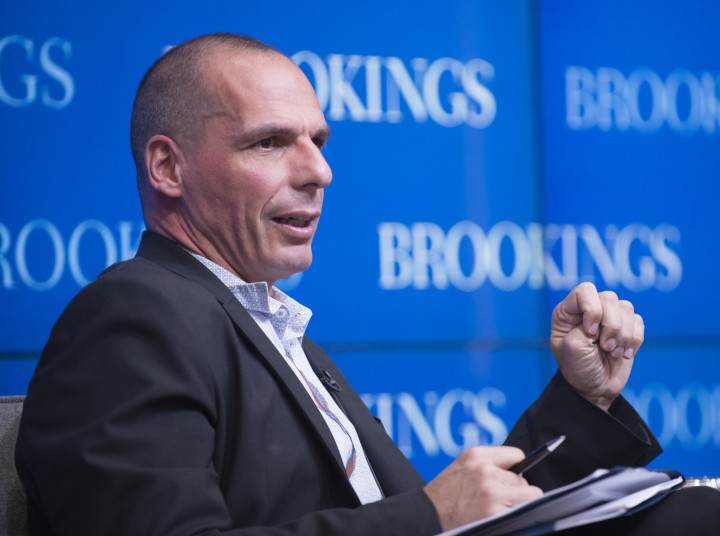This morning Yanis Varoufakis announced on his blog that he would be “Minister No More”. The short text explained that:
“Soon after the announcement of the referendum results, I was made aware of a certain preference by some Eurogroup participants, and assorted ‘partners’, for my… ‘absence’ from its meetings; an idea that the Prime Minister judged to be potentially helpful to him in reaching an agreement. For this reason I am leaving the Ministry of Finance today.”
It is odd that an individual who has been so integral to the strength of the country’s feeling against austerity policies should now abandon his position at a time when his intellect would be most useful in the Finance Ministry. Nevertheless, maybe the Prime Minister believes that Varoufakis has done everything he could to stir up irritation with Greece’s creditors leading to last night’s huge show of support, and now a softer approach is required.
What is clear though is that the finance ministers in the other 18 Eurozone countries can only dream of having 60% approval for their policies and it’s good for them that they don’t give their people the chance to express this in national referendums. In this light, it is only to be expected that the other ministers don’t want to talk to Varoufakis. It’s true that they’d rather not deal with Tsipras either, having already seemingly lined up the Head of the Bank of Greece, Yannis Stournaras, to replace him today if the YES campaign had won according to the rumour published on the UK’s Daily Telegraph blog yesterday.
The path ahead for Greece is not certain. Despite a resounding NO vote against the creditors’ last set of proposals, it is clear that the vast majority of Greeks want to stay in the Eurozone. And why shouldn’t they? It’s their project as much as anyone else’s and they’ve worked hard for it.
A political decision was taken 15 years ago to enter the single currency, not only by Greece, but by its Eurozone partners. Germany and the others knew full well that Greece didn’t meet the criteria that had been agreed, and then banks continued lending to Greece despite the fact that Greek debt was higher than agreed levels.
If any ordinary person went to a bank and tried to borrow money when we were already too much in debt they would refuse us. Reckless banking practices caused this disaster as much as the series of corrupt Greek governments that has been in power since 1974. When the collapse came, who took the blame and who was punished? It was ordinary Greek citizens without moveable assets that could be taken quickly overseas who had nothing to give but their jobs and their wellbeing.
There is an alternative to austerity and now is the time to implement it and Syriza was elected for just such a purpose. Now, with this huge boost to democracy coming once more from Greece – a roar that has been heard so loudly all over the world – now is the time for Tsipras to say once more OXI (NO) until he gets what the country can reasonably afford to implement.










